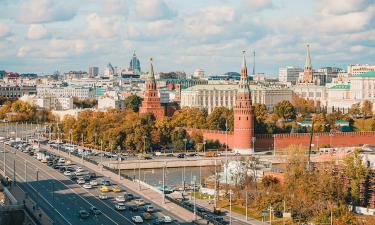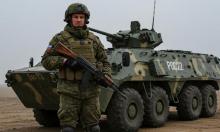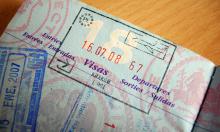Colombia's Uribe to run for second presidential term next year
Colombian President Alvaro Uribe on Sunday formally announced that he will run for a second term in next year's elections, saying he needed four more years to accomplish his goals of restoring security to the country and spurring its economic growth. Uribe becomes the first Colombian president in more than a century to run for re-election. The move came after his supporters in Congress passed a constitutional amendment earlier this year lifting a long-standing ban on presidential re-election. Colombia's highest court upheld the change.
"I will work so that our country can consolidate democratic security, meet the social goals of eradicating poverty and definitively root out corruption," Uribe, 53, said in a brief televised speech from the presidential palace in which he announced his decision. Polls show that Uribe, a staunch Washington ally, is expected to sweep to victory in the May 28 presidential vote, thanks in large part to his tough military policies against leftist rebels and drug traffickers. In the three-and-a-half years since he came to power, crime rates have dropped, the economy has strengthened and the army has pushed guerrillas from many of their traditional strongholds.
This South American country has not seen a president re-elected since the 1800s. Critics of the amendment note that re-election has a poor track record in the region, with second-term leaders often veering toward authoritarianism.
Colombia's highest court, however, has set limits on Uribe's ability to use state funds and institutions to promote his re-election. It has barred him from using the presidential palace as his campaign headquarters and he cannot have his speeches broadcast on the state's official television channel.
Colombia's leading left-wing opposition figures have pledged to create a coalition in which only one candidate would run against Uribe in order to increase their chances of victory.
But Jaime Dussan, leader of the left-wing Independent Democratic Pole party, said that Uribe, whose approval ratings hover around 70 percent, will be hard to beat.
"Uribe has occupied all the political ground in the country," Dussan told local radio Sunday.
The military has been on high alert amid fears that Colombia's main rebel group, the Revolutionary Armed Forces of Colombia, or FARC, might launch attacks to try to undermine Uribe's re-election bid, reports the AP. I.L.
Subscribe to Pravda.Ru Telegram channel, Facebook, RSS!




